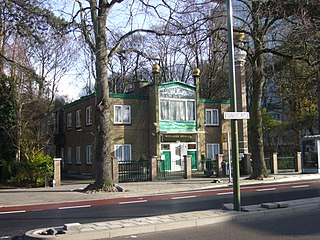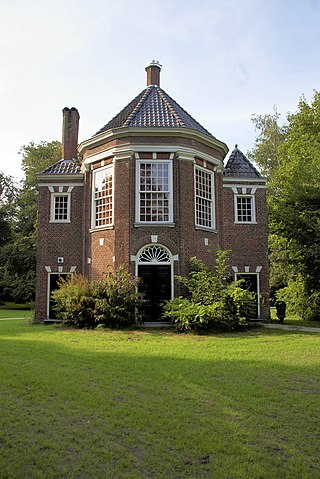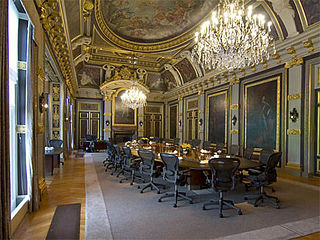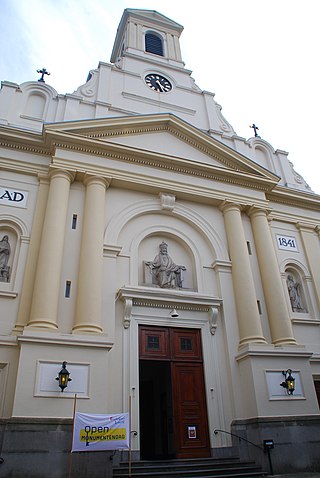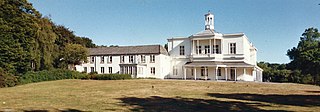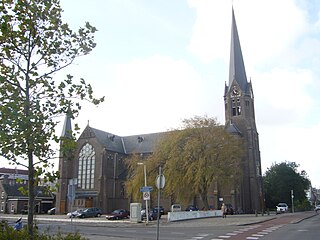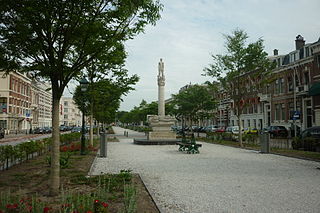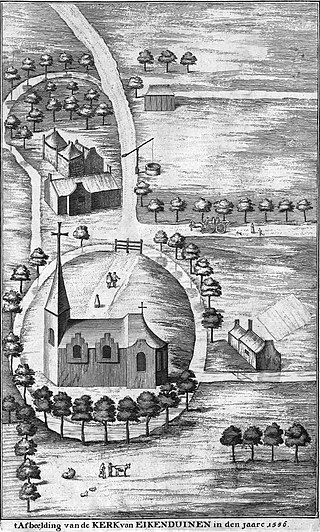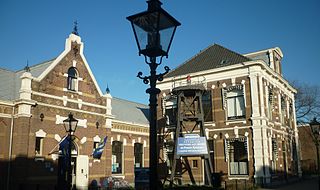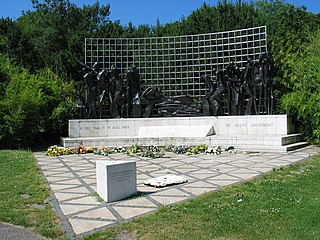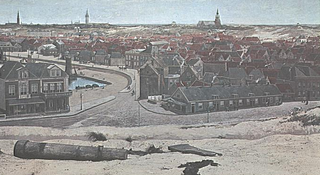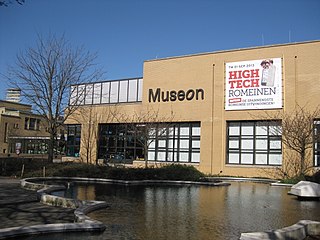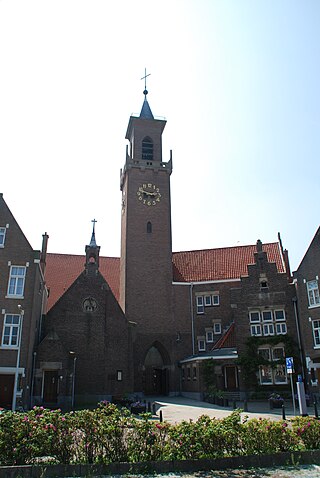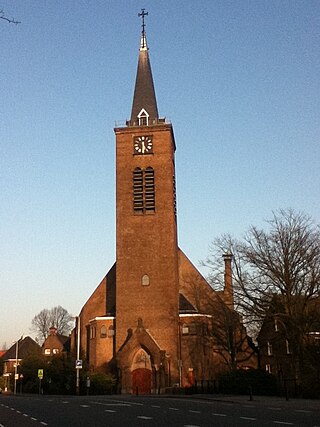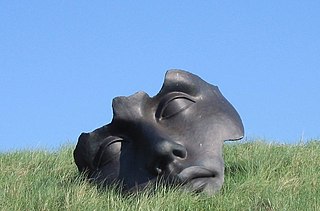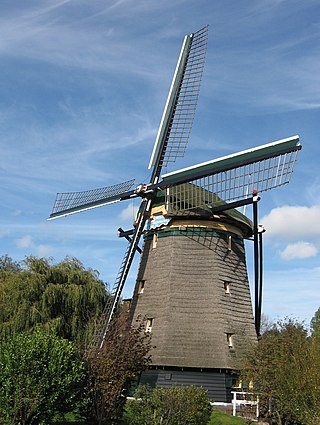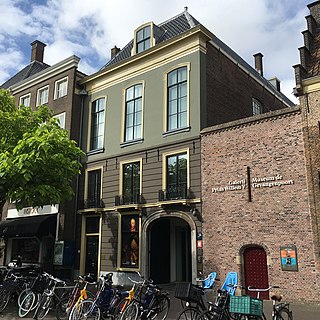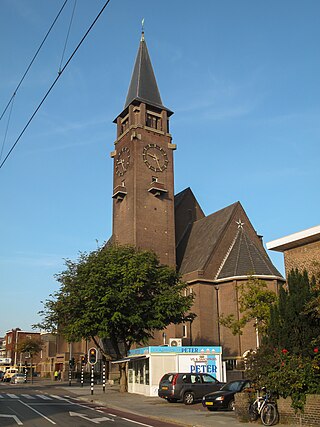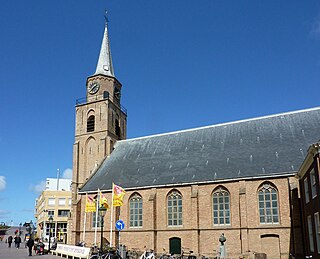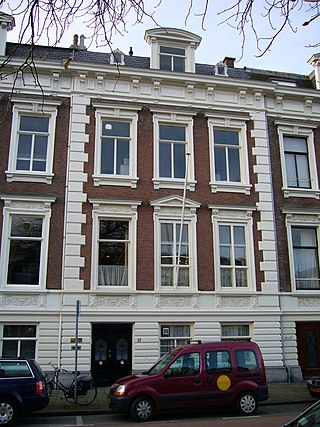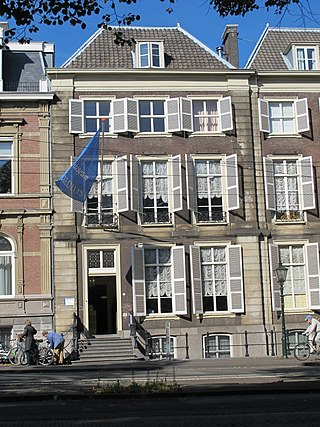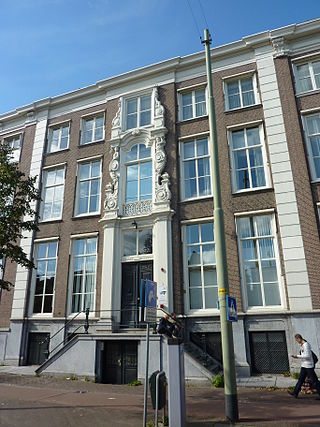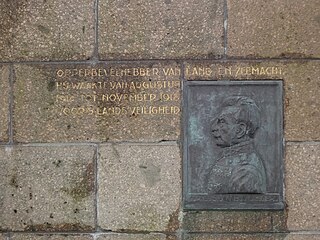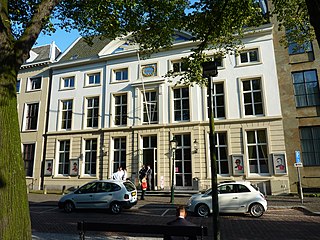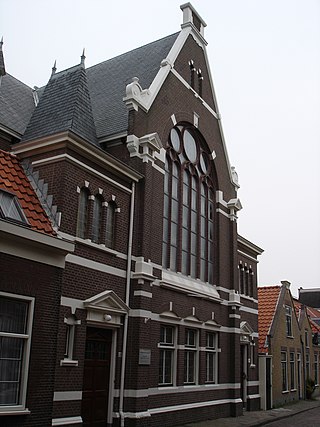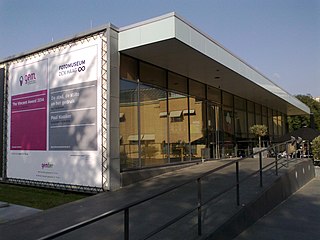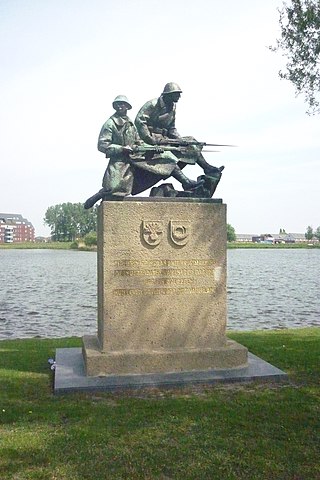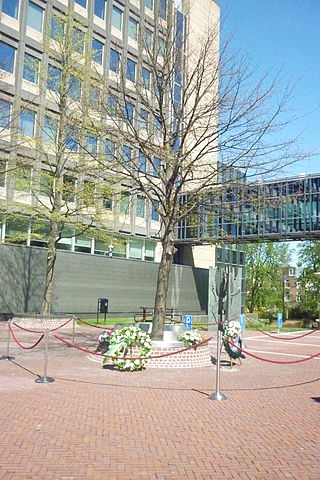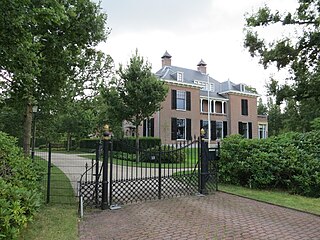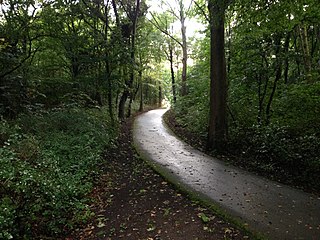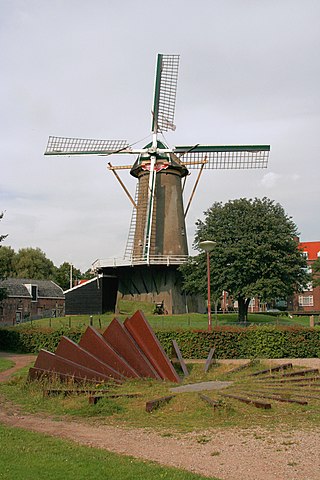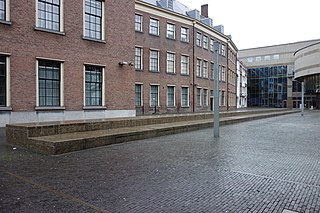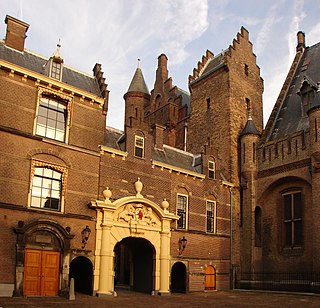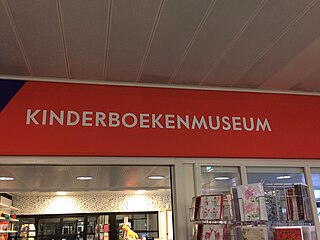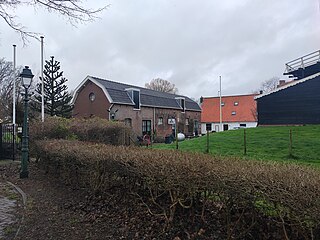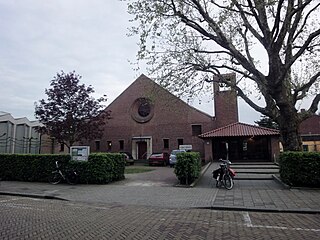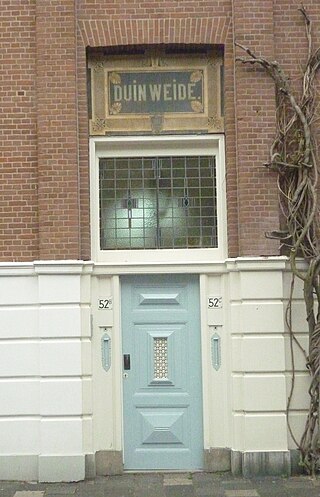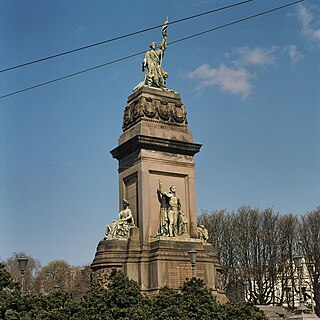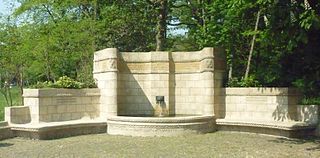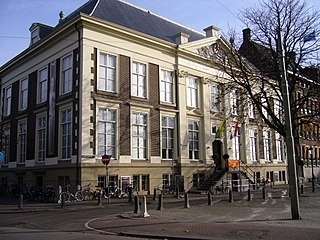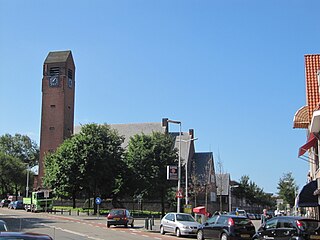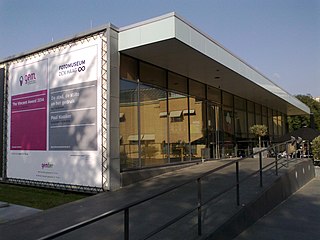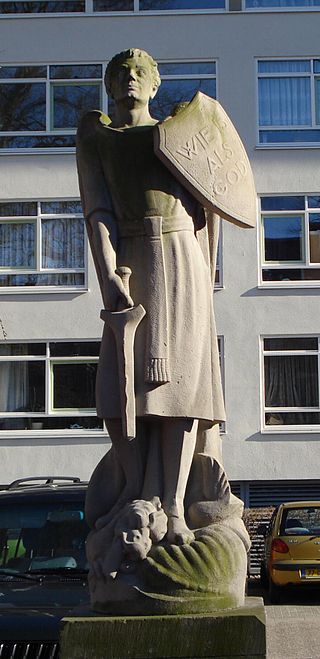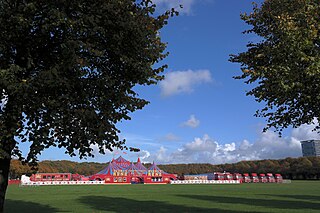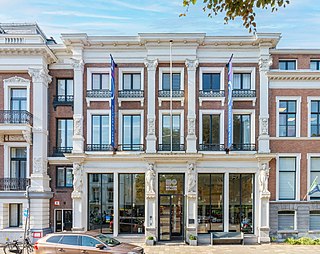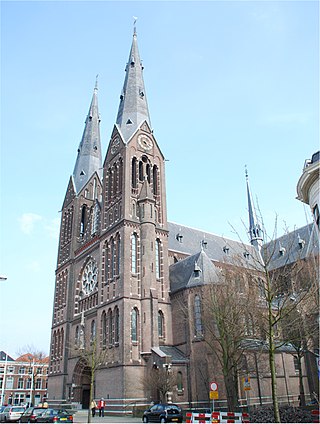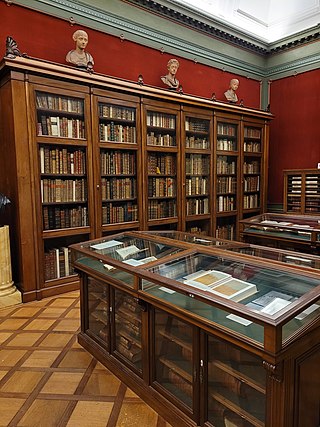65 Sights in The Hague, Netherlands (with Map and Images)
Legend
Premium Sights
Book tickets, guided tours and activities in The Hague.
Guided Free Walking Tours
Book free guided walking tours in The Hague.
Welcome to your journey through the most beautiful sights in The Hague, Netherlands! Whether you want to discover the city's historical treasures or experience its modern highlights, you'll find everything your heart desires here. Be inspired by our selection and plan your unforgettable adventure in The Hague. Dive into the diversity of this fascinating city and discover everything it has to offer.
Sightseeing Tours in The HagueActivities in The HagueThe Mauritshuis is an art museum in The Hague, Netherlands. The museum houses the Royal Cabinet of Paintings which consists of 854 objects, mostly Dutch Golden Age paintings. The collection contains works by Johannes Vermeer, Rembrandt van Rijn, Jan Steen, Paulus Potter, Frans Hals, Jacob van Ruisdael, Hans Holbein the Younger, and others. Originally, the 17th-century building was the residence of Count John Maurice of Nassau. The building is now the property of the government of the Netherlands and is listed in the top 100 Dutch heritage sites.
The Ridderzaal is the main building of the 13th-century inner square of the former castle of the counts of Holland called Binnenhof at the address Binnenhof 11 in The Hague, Netherlands. It is used for the annual state opening of Parliament on Prinsjesdag, when the Dutch monarch drives to Parliament in the Golden Coach and delivers the speech from the throne. It is also used for official royal receptions, and inter-parliamentary conferences.
The Nieuwe Kerk is a Dutch Baroque Protestant church in The Hague, located across from the modern city hall on the Spui. It was built in 1649 after the Great Church had become too small. Construction was completed in 1656.
Madurodam is a miniature park and tourist attraction in the Scheveningen district of The Hague in the Netherlands. It is home to a range of 1:25 scale model replicas of famous Dutch landmarks, historical cities and large developments. The park was opened in 1952 and has since been visited by tens of millions of visitors. The entirety of net proceeds from the park go towards various charities in the Netherlands.
Wikipedia: Madurodam (EN), Website, Url, Opening Hours, Facebook
5. Christian Science
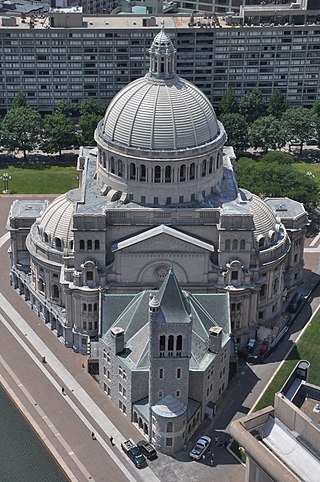
Christian Science is a set of beliefs and practices which are associated with members of the Church of Christ, Scientist. Adherents are commonly known as Christian Scientists or students of Christian Science, and the church is sometimes informally known as the Christian Science church. It was founded in 1879 in New England by Mary Baker Eddy, who wrote the 1875 book Science and Health with Key to the Scriptures, which outlined the theology of Christian Science. The book was originally called Science and Health; the subtitle with a Key to the Scriptures was added in 1883 and later amended to with Key to the Scriptures.
6. Thomaskerk
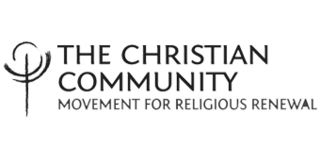
The Christian Community is a liberal and esoterically-oriented Christian denomination established in Germany in 1922 by Lutheran ministers influenced by Anthroposophy. As of 2023, it claims approximately 100,000 members in more than 400 congregations.
7. Vrijmetselarij Museum
The Cultural Masonic Centre 'Prins Frederik' (CMC) in The Hague, in the Dutch province of South Holland, is a museum, archive and library of the Order of Freemasons under the Grand Orient of the Netherlands. The center manages the collection that the Dutch Freemasons have assembled over more than 250 years.
Wikipedia: Cultureel Maçonniek Centrum 'Prins Frederik' (NL), Website
8. Geünieerde Loge van Theosofen
The United Lodge of Theosophists or ULT is an informal and wholly voluntary association of students of Theosophy. It was founded in 1909, mainly through the efforts of Robert Crosbie. The first parent lodge of the ULT was started in Los Angeles by Robert Crosbie and seven other associates through the adoption of its Declaration on February 18, 1909. Owing largely to the revival efforts of B.P. Wadia after Crosbie's death, there are currently about twenty active lodges spread all over the world. The ULT is considered to be part of the second generation or the third section of the Theosophical Movement started in 1875 by H.P. Blavatsky in New York. Presently, it is also one of the existing four main "branches" of the original Theosophical Movement. The following founding principles when taken as a whole, sets apart the ULT from the other Theosophical Organizations:
9. Kloosterkerk
The Kloosterkerk is a church on the Lange Voorhout in The Hague, Netherlands. The church and its accompanying monastery were first built in 1397. The church is known today as the church where Beatrix of the Netherlands occasionally attended services.
10. Haags Openbaar Vervoer Museum
Since 1989, the Hague Public Transport Museum (HOVM) has been located in an old tram depot, the Frans Halsstraat depot in The Hague. This depot was built in 1906 and was used by the Haagsche Tramweg Maatschappij (HTM) until 1983.
11. Grote of Sint-Jacobskerk (The Hague)
The Great Church or St. James' Church is a landmark Protestant church in The Hague, Netherlands. The building is located on the Torenstraat, named for its high tower. Together with the Binnenhof, it is one of the oldest buildings in The Hague. Members of the House of Orange-Nassau have been baptised and married there. The latest are King Willem-Alexander of the Netherlands and his daughter and heir apparent Catharina-Amalia, Princess of Orange.
Wikipedia: Grote or Sint-Jacobskerk (The Hague) (EN), Website
12. Westbroekpark
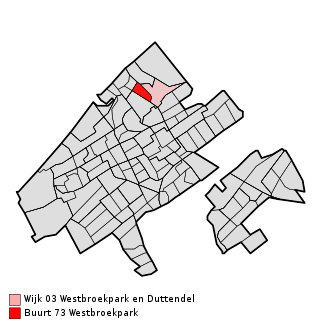
The Westbroekpark is a park and district with an area of 18 hectares, which is located in The Hague, between Madurodam and Scheveningen. It is located on the grounds of an old hamlet, which was called Wittebrug. The Westbroekpark is one of the protected cityscapes in The Hague, together with the Belgian Park.
13. Laakmolen
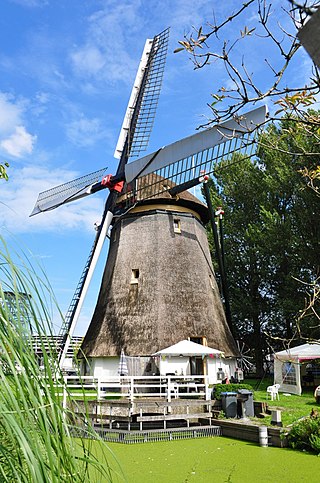
The Laakmolen is a polder mill in what is now The Hague (Laakkwartier) located on the Haagse Vliet on the corner of the Laakkade and the Trekweg. The Laakmolen, an 8-sided ground sailer, dates from 1699 and was partly built on the foundations of an earlier mill. The mill was built on behalf of the Delfland Water Board and, together with the Broeksloot Mill or New Mill, had to ensure that the water in the Noordpolder remained at the desired height. The water was ground from the water the Laak in the basin. The Haagse Vliet was the basin water.
14. Mubarak Mosque
The Mubarak Mosque in The Hague is the first purpose-built mosque in the Netherlands. Its foundation stone was laid by Sir Muhammad Zafarullah Khan on 20 May 1955 who later inaugurated the mosque on 9 December 1955.
15. Landgoed Oostduin en Arendsdorp
Arendsdorp is the remnant of an old estate and a country estate, located in the Benoordenhout protected cityscape in The Hague. A considerable part of the Benoordenhout district was built on parts that were withdrawn from this estate.
16. Trêveszaal
The Trêveszaal is a historic meeting room from 1697 at the Binnenhof in The Hague and is part of the buildings of the Ministry of General Affairs. Since 1977 it has been the permanent meeting room of the Dutch Council of Ministers. The Trêveszaal and the Statenzaal adjacent are also used for official receipts from the Prime Minister and the Council of Ministers. Trêve is French for 'file'; The name of the room refers to the negotiations that took place here in 1608 with Spain, prior to the twelve-year file (1609-1621).
17. H. Teresia van Avila
The Teresa of Avila Church, also known as the Church of Saint Teresa of Avila, is a Roman Catholic church from 1841 that is located in the Spaansche Hof on the Westeinde in The Hague. The church is a national monument and is in the 'Top 100 of the National Service for the Preservation of Monuments' from 1990. The church is dedicated to Saint Teresa of Ávila.
18. Landgoed Ockenburgh
Ockenburgh Estate is a former estate with country house in the municipality of The Hague. It is located just west of the core of Loosduinen, a short distance from the coast. It is freely accessible; the driveway starts at the Monsterseweg. Since 1990, the estate has been part of the protected natural monument Solleveld. It is part of the Hollandse Duinen National Park.
19. Onze Lieve Vrouw Hemelvaartkerk
The Church of Our Lady of the Assumption is a Roman Catholic church in Loosduinen in the Dutch city of The Hague. The church belongs to the faith community of "Maria van Eik en Duinen", part of the parish Parish of the Four Evangelists. The church is located on the Loosduinse Hoofdstraat. A little further on, on the same side of the street, the Hague Liberation Monument has stood since 1955.
20. 'Centraal Monument voor Gevallen PTT'ers'
Nassauplein is a long rectangular square in the Archipel neighbourhood in The Hague with only 43 house numbers. There used to be a moat, but it was covered over in 1883. At the beginning of the 20th century, the water was filled in. A small part is still covered and water from the Haagse Beek flows from the last part of Nassauplein under the Javatraat junction and with a waterfall the stream flows into the Willemspark and from there into the Singelgracht.
21. Kerk van Eikenduinen
The Church of Eikenduinen, better known as the Ruin or Chapel of Eikenduinen, was a Roman Catholic church building located in the old dunes between Loosduinen and The Hague. It was founded by Count William II of Holland and gained fame due to the presence of a special relic. Nowadays, the remaining ruin, a national monument, is mainly associated with the cemetery that arose around the ruins over the centuries, Oud Eik en Duinen.
22. Muzee Scheveningen
Muzee Scheveningen is a cultural and natural history museum in the Dutch seaside resort of Scheveningen, a district of The Hague, that portrays the history, culture and daily life of that place, especially in relation to the sea and fishing.
23. 'Indisch-monument'
The Indies Monument is a memorial in The Hague in memory of all Dutch citizens and soldiers killed during World War II as a result of the Japanese occupation (1942–1945) of the former Dutch East Indies. It is dedicated to all who died in battle, in prison camps or during forced labor. As stated in the mission statement of the 15 August 1945 Commemoration Foundation, it is also:A place where you can pass on to your children the part of your childhood spent in the Dutch East Indies
24. Catshuis
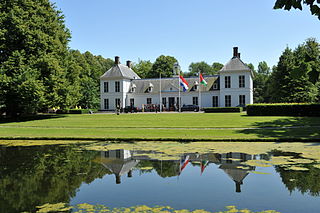
The Catshuis, initially known as Huis Sorgvliet, is the official residence of the Prime Minister of the Netherlands. Built between 1651 and 1652 for Jacob Cats as private villa, it was renamed after him after his death.
25. Panorama Mesdag
Panorama Mesdag is a panorama by Hendrik Willem Mesdag. Housed in a purpose-built museum in The Hague, the panorama is a cylindrical painting more than 14 metres high and about 40 metres in diameter. From an observation gallery in the centre of the room the cylindrical perspective creates the illusion that the viewer is on a high sand dune overlooking the sea, beaches and village of Scheveningen in the late 19th century. A foreground of fake terrain around the viewing gallery hides the base of the painting and makes the illusion more convincing.
26. Church of St. John & St. Philip
The Church of St. John and St. Philip, in short the English Church, is an Anglican church building on the Ary van der Spuyweg in The Hague. The priest's house is next door at the beginning of the Riouwstraat.
Wikipedia: Anglican Church of St. John and St. Philip (NL), Mapillary, Website
27. Museon-Omniversum
Museon is a museum for science and culture in The Hague, Netherlands, with a strong focus on education. It regularly presents exhibitions on a range of topics related to the environment, geography or cultural identity. It has an extensive collections in the domains of geology, biology, archaeology, history, science and ethnology. The name Museon is a shortening of the museum's original extended Dutch name - Museum ten bate van het Onderwijs. Since 2022, the museum has been merged with the nearby cinema Omniversum, and goes by the name Museon-Omniversum: One Planet
28. Lourdeskapel
The Lourdes Chapel in Scheveningen is part of the urban complex included in the register of national monuments, which is sometimes called 'the church village'. The chapel dates from 1913 and is located on the Berkenbosch Blokstraat.
29. Scheveningse Bosjes
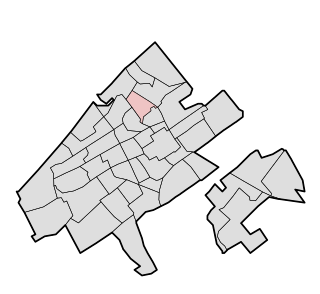
The Scheveningse Bosjes is an original dune area and now a park in the Scheveningen district. The park is bordered by the Scheveningseweg on the southwest side, the Kerkhoflaan on the southeast side and Madurodam on the north side. The Prof. B.M. Teldersweg cuts the forest in half from Madurodam to the Scheveningseweg. On the sea side there is a large pond, the Water Feature.
30. Sint Paschalis Baylon
The St. Paschalis Baylon Church on the Wassenaarseweg in The Hague was built between 1919 and 1921. The church is named after the Spanish saint Paschalis Baylon. The school in the neighborhood is named after the church.
31. Museum Beelden aan Zee
Beelden aan Zee museum in the Scheveningen district of The Hague, founded in 1994 by the sculpture collectors Theo and Lida Scholten, is the only Dutch museum which specialises in only exhibiting sculpture.
32. Nieuwe Veenmolen
Nieuwe Veenmolen or Boschmolen is a polder mill of the ground sailer type in The Hague, Bezuidenhout. The mill from 1654 is located next to the railway line The Hague - Leiden and originally drained the Veen- and Binckhorstpolder together with the older mill De Vlieger in Voorburg. The mill, which was originally built as an indoor porter, is equipped with an iron paddle wheel.
33. Galerij Prins Willem V
The Prince William V Gallery is an art gallery on the Buitenhof in The Hague that currently shares an entrance with the Gevangenpoort museum. It is a recreation of the original gallery Galerij Prins Willem V, once founded there by William V, Prince of Orange in 1774. The displayed paintings are part of the collection of the Mauritshuis. Amongst the paintings on display are works by Peter Paul Rubens, Jan Steen, Paulus Potter and Gerard van Honthorst.
34. Bethlehemkerk
The Bethlehem Church at Laan van Meerdervoort 627 in The Hague is a church building of the Protestant Congregation of The Hague. The building is used by the extraordinary reformed district congregation. The church building is a municipal monument.
35. Oude Kerk
The Oude Kerk is located in the Keizerstraat, once one of the busiest shopping streets in Scheveningen, in the Dutch municipality of The Hague. The church is the oldest monument of the former fishing village. The Oude Kerk is a church of the Protestant congregation in Scheveningen and accommodates its Wijkgemeente Oude Kerk and the Restored Reformed Congregation Thabor Scheveningen.
36. Damesleesmuseum
The Women's Reading Museum is a private library in The Hague, founded in 1894. It is the only surviving Dutch 'reading museum' for women and has a collection of more than 35,000 books. Since 1974, membership has also been open to men.
37. Museum Bredius
Museum Bredius is a museum showing the collection of the early twentieth century Dutch art historian Abraham Bredius. The collection is remarkable for its seventeenth-century etchings and paintings, but is most attractive to visitors for its accurate restoration of the 18th-century Herenhuis interior with period furnishings. The museum is situated on the Lange Vijverberg in The Hague, the Netherlands
38. Mauritspoort
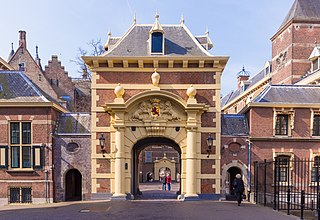
The Mauritspoort or Grenadierspoort is the eastern gateway to the Binnenhof in The Hague. The gate was built in 1634 together with the nearby Binnenpoort and had a drawbridge over an inner moat at the time. The pulley holes are still visible on the outside.
39. De Drie Stoepen
The Three Sidewalks is the joint name of three adjacent national monuments from the first half of the eighteenth century, in the center of The Hague. In addition to their original function as residences, they would later serve as a museum, court, official residence, and (provisional) seat of the Permanent Court of Arbitration. The name dates back to the sixties of the twentieth century, when the buildings were used as a conference and entertainment center.
40. Oorlogsmonument 'Leger en Vloot'
The Army and Fleet Memorial commemorates the Dutch troops that were mobilized at the beginning of the First World War and the victims who fell during the war. The monument is located on the boulevard in Scheveningen, just south of the Kurhaus, next to a staircase that goes from the boulevard to the Gevers Deynootplein. It was unveiled on September 20, 1921 by Queen Wilhelmina. In 2018, the Army and Fleet Memorial was dismantled and temporarily stored in a depot.
41. Theater Diligentia
Diligentia is a learned society founded in The Hague in 1793. All reigning monarchs of the Netherlands since King William I have been patrons of Diligentia, and many members of the royal family have been honorary members.
42. Eben Haëzerkerk
The Eben-Haëzerkerk is the church building of the Reformed Congregation in Scheveningen. The church is located on the Nieuwe Laantjes and also has an entrance in the Keizerstraat. As of 1 January 2018, the Eben-Haëzerkerk has been withdrawn from worship.
43. KM21
KM21 is a museum for contemporary visual art in The Hague in the Netherlands. The museum was established in 2002 as part of the Kunstmuseum Den Haag. In KM21 work by artists from The Hague, the Netherlands and international contemporaries is exhibited.
44. Oorlogsmonument 'Grenadiers en Jagers'
The Grenadiers and Hunters Monument is a monument in memory of soldiers from the Regiment of Guards Grenadiers and Hunters who have died since 1940. The statue was made by artist Dirk Bus and was unveiled in 1951.
45. Oorlogsmonument 'Dwangarbeiders'
Forced Labourers is a war memorial in The Hague. It is located in the courtyard of the Provincial Government House. At the time, it was the site of the Hague Zoo, where men were gathered in the zoo building during a raid in 1944.
46. Vredenoord
Vredenoord is a country estate that until 2002 was located in the Dutch town of Rijswijk, in the province of South Holland, but due to a change in the municipal boundary it is now in The Hague. Vredenoord has had several names: Buytenburch, Alphenrust, Oversteen and Hoflust, among others.
47. Nieuwe Scheveningsche Bosjes
The Nieuwe Scheveningse Bosjes in The Hague were built at the end of the 19th century for the purpose of providing employment. They are surrounded by the Belgisch Park, the Klattepark and the Wittebrug Park.
48. De Korenaer
The windmill De Korenaer, also called Molen Prins Maurits, was built in 1721 on a substructure from 1595 and is located at Margaretha van Hennebergweg 2a in the Loosduinen district of The Hague. There was a mill on this site as early as 1310. The current mill is a round stone tower mill on a square stone base. The mill has two coupling grinding stones, each with a regulator for grinding grain. The millstones are artificial stones with a diameter of 140 cm.
49. Grondwetbank
The Constitution Bench is a monument to the Dutch Constitution located at the Hofplaats in The Hague. The monument has the form of a 45-metre-long bench made of smooth marble on which the text of Article 1 of the Dutch Constitution is applied.
50. Binnenpoort
The Binnenpoort or Middenpoort is one of the four preserved entrance gates that give access to the Binnenhof in The Hague. The gate forms the connection between the buildings on the north side and the Ridderzaal. It was built together with the nearby Mauritspoort in 1634 and was used to close off the Binnenhof. The entrance gate is made of brick with sandstone frames. Above the gate are two lions. Next to the gate are two pedestrian passages. Above the gate is a meeting room accessible from the white gallery. This was a former connecting corridor to the Count's halls.
51. Kinderboekenmuseum
The Kinderboekenmuseum is a museum in The Hague, Netherlands, dedicated to Dutch language children's books. It is part of the Literatuurmuseum, and housed as part of the same building complex as the National Library of the Netherlands. It opened in 1994.
52. Loosduins Museum De Korenschuur
The Loosduins Museum in The Hague is a museum that focuses on the cultural heritage of the Loosduinen district, which has its origins in the twelfth century, when Floris III of Holland founded a homestead there. From 1811 to 1923 Loosduinen was an independent municipality.
53. Maranathakerk
The Maranatha Church is a Dutch Reformed Church on the Tweede Sweelinckstraat in The Hague. The church was built in 1949 on a site that lay fallow due to demolition work for the Atlantic Wall, a defensive work of the Germans against possible Allied attacks in World War II. Maranata is a phrase in the New Testament, which means "Our Lord, Come!"
54. Landgoed Duinweide
Duinweide was a country estate in The Hague, located on the site of the current Archipel neighbourhood. It was one of the country estates in the dune area between the Haagse singelgracht and Scheveningen, where the estates of Houtrust and Sorghvliet were also located.
55. Nationaal Onafhankelijkheidsmonument
The National Monument on Plein 1813 in The Hague was unveiled in 1869 to commemorate the victory over Napoleon, the end of the French era in the Netherlands, the independence and the foundation in 1813 of the Sovereign Principality of the United Netherlands, the predecessor of the United Kingdom of the Netherlands and the current Kingdom of the Netherlands.
56. Van Karnebeekbron
The Van Karnebeek spring is a sandstone monument that commemorates the Carnegie Foundation and the opening of the Peace Palace in The Hague on 28 August 1913. It is a bench with fountain, is located on the corner of Scheveningseweg and Carnegielaan and consists of three parts. The curved middle part is higher than the two side parts and has a lion's head in the middle from which spring water comes out. A frieze with text runs along the entire length. Willem C. Brouwer (1877-1933), founder of the factory Brouwer's Aardewerk NV (1915-1956), made the monument.
57. Prins Maurits en de burgers van Den Haag
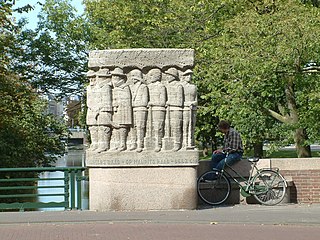
Prince Maurits and the Citizens of The Hague is a monument in honour of Prince Maurits that is located on the Heerenbrug in The Hague. The monument commemorates the fact that between 1613 and 1619 the citizens of The Hague had dug a canal around the place that served to defend the city by order of Maurice. Maurits had previously given the city council funds to build a city wall, but the government of The Hague had a new city hall built on the Dagelijkse Groenmarkt. Later Maurits settled in The Hague. He did not receive permission from the States of Holland to wall the city, but he did get permission to build a wide defensive canal.
58. Haags Historisch Museum
The Haags Historisch Museum is a museum situated on the Korte Vijverberg in The Hague, Netherlands, dedicated to the history of the city. It is based in the one-time guild house of Saint Sebastian. In the seventeenth century, this guild house was the home of the civilian militia of Saint Sebastian, whose members are depicted in some of the museum collections.
59. Prinses Julianakerk
The Princess Juliana Church in The Hague is a church in the Scheveningen district of Duindorp. The church was built in a business-expressionist style and is located on the corner of the Nieboerweg, Tesselsestraat and the Vlielandsestraat. The architect W.Ch. Kuijpers also designed the New Bath Chapel in Scheveningen.
60. Fotomuseum Den Haag
The Fotomuseum Den Haag is a photography museum in The Hague. The museum was founded in 2002. It was a spin-off of the nearby Kunstmuseum Den Haag, when then director Wim van Krimpen decided that the Kunstmuseum's collection of photography had become so rich that it deserved a separate location. It shares an entrance and space with the museum of contemporary art KM21.
61. Oorlogsmonument 'Aartsengel Michael'
Archangel Michaël is a natural stone monument in The Hague with which the Archangel is thanked for his protection of the Joannes de Deo hospital during the Second World War. The statue was made by Herman van Rememmen and unveiled in 1947. It was then placed under the roof at the entrance of the hospital.
62. Malieveld
Malieveld is a large grass field in the city center of The Hague, Netherlands, located opposite the central train station. The field is widely known in the Netherlands for being the location of many large-scale demonstrations. It is also used for festivals, funfairs, concerts and other big events.
63. Beeld en Geluid Den Haag
Sound & Vision in The Hague was a Dutch interactive museum about life in the media. It was located at Zeestraat 82 in The Hague. Until 2019, the museum was known as COMM, previously also as the Museum for Communication and as the PTT Museum. In 2019, the museum was taken over by the Hilversum Sound and Vision and was renamed Sound and Vision The Hague. In 2022, the Sound and Vision Foundation The Hague and the Netherlands Institute for Sound and Vision merged into 1 company, and continued under the name Sound & Vision.
64. O.L.V. Onbevlekt Ontvangen / Elandstraatkerk
The Church of Our Lady of the Immaculate Conception, also known as the Elandkerk or Elandstraatkerk, is a Roman Catholic church on the Elandstraat in the Zeeheldenkwartier in The Hague. The church building and the faith community are part of the parish Maria Sterre der Zee.
65. Museum Meermanno
House of the Book is the oldest book museum in the world. It is located in the former home of the founder of the museum Willem Hendrik Jacob baron van Westreenen van Tiellandt (1783-1848) on the Prinsessegracht in The Hague and focuses on the written and printed book in all its forms, past and present. The development of the design of both old and modern books is central to this.
Share
How likely are you to recommend us?
Disclaimer Please be aware of your surroundings and do not enter private property. We are not liable for any damages that occur during the tours.

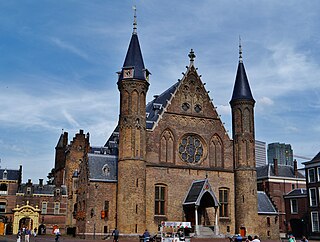
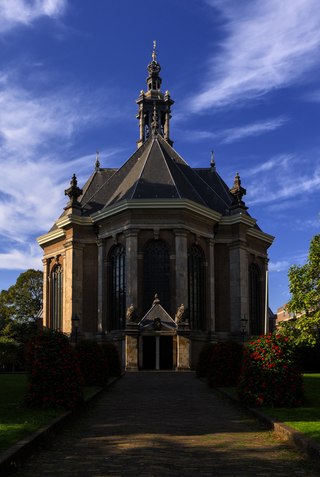
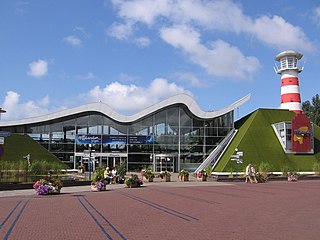
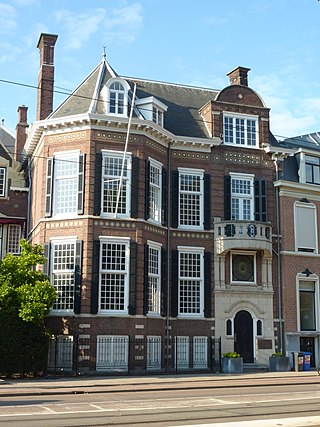

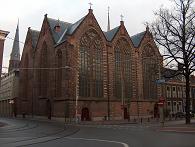
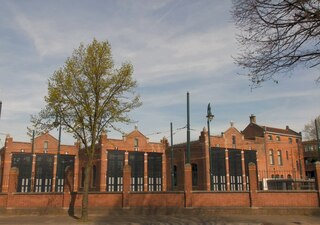
.jpg)
